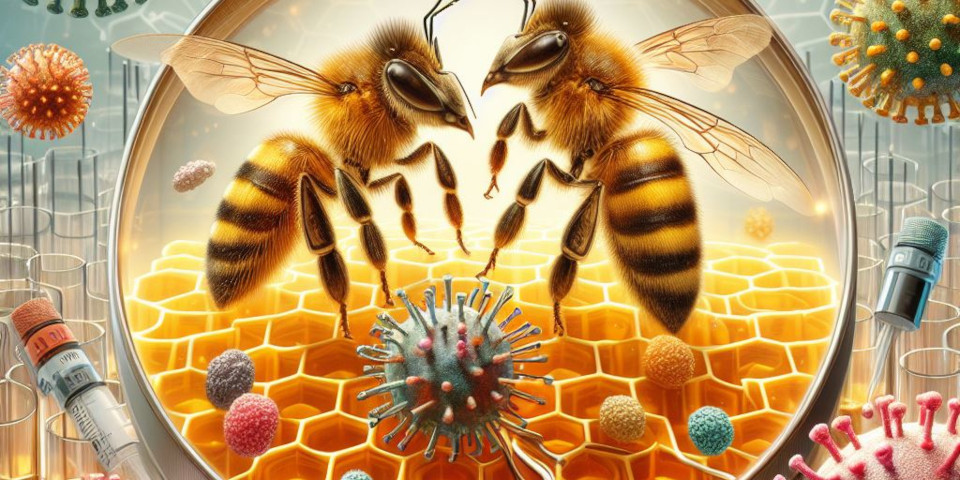Colony losses are frequently reported during winter and rarely during summer in Europe, the Mediterranean Sea region, and North America. The impact of air temperature on honey bee colony activities or bee pathogens suggests a potential indirect role of temperature in colony losses. Honey bees are infected by numerous viral, bacterial, and fungal diseases. However, the effects of temperature on certain bee pathogens have not been studied sufficiently. This review aims to explore the relationship between temperature and the prevalence of crucial honey bee diseases, as well as the potential role of temperature in accelerating colony losses caused by those pathogens. Herein, we only focus on the key pathogens that widely infect honey bees. The seasonal prevalence of certain pathogens has been observed, with some being more prevalent during active seasons for honey bees, while others are more prevalent during winter. Furthermore, an interactive role of temperature in the prevalence of bee pathogens and their contribution to colony losses has been suggested and discussed. Solutions to directly or indirectly reduce colony losses by controlling temperature are proposed, such as modifying hive structures and employing specialized devices and techniques to manipulate colony temperature.
Free copies are available HERE!










